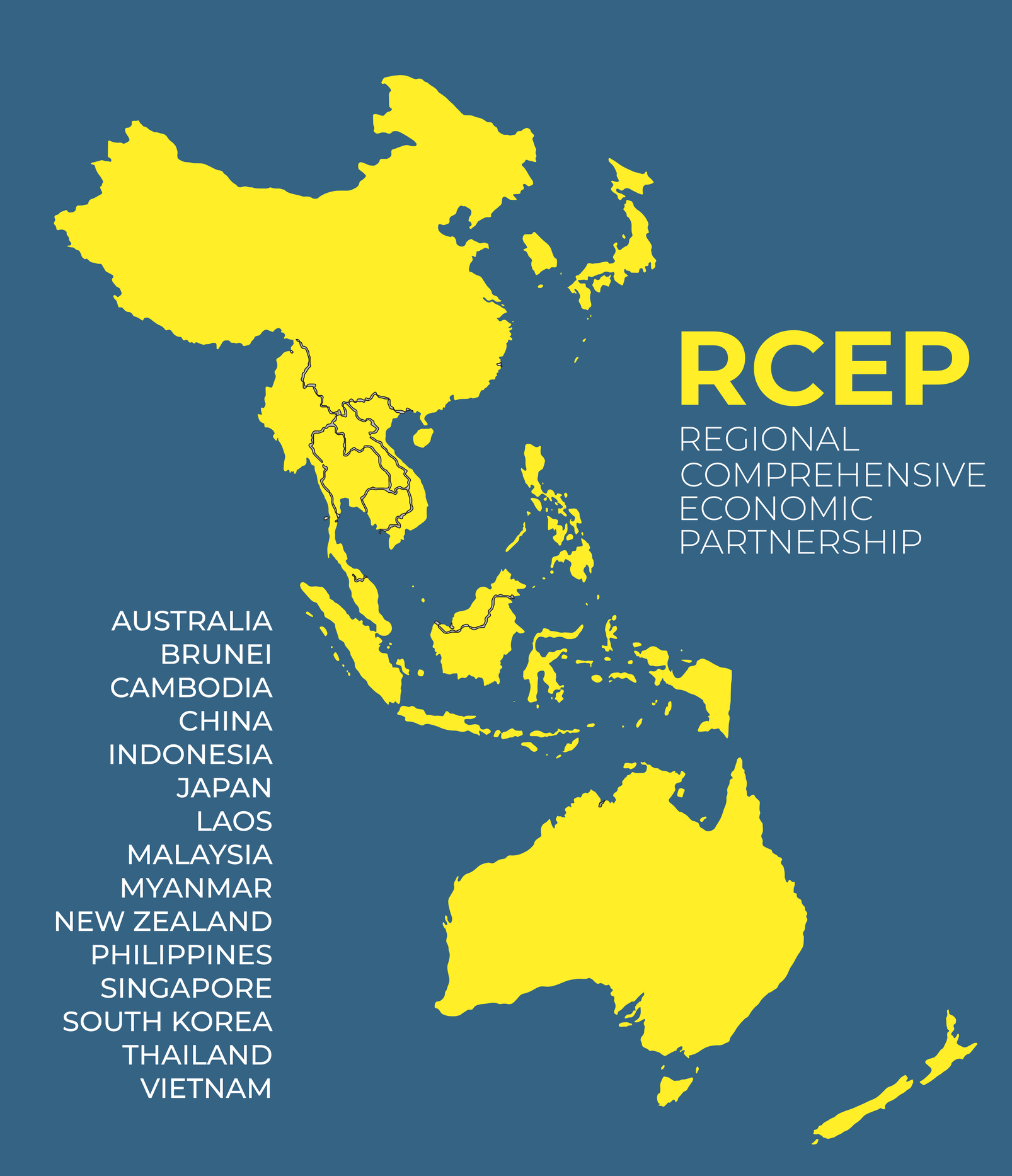Important Facts For Prelims
Regional Comprehensive Economic Partnership
- 18 Oct 2023
- 3 min read
Why in News?
Four years after India's exit, neighboring nations Sri Lanka and Bangladesh are considering joining the Regional Comprehensive Economic Partnership (RCEP).
What is a Regional Comprehensive Economic Partnership?
- About:
- The RCEP is a significant economic agreement between ASEAN members and Free Trade Agreement (FTA) partners.
- RCEP is the world's largest trading bloc. It is designed to promote economic integration, trade liberalization, and cooperation among member nations.
- The RCEP negotiations began in 2012. It was officially signed in November 2020, marking a major milestone in regional trade. It was entered into force on January 1, 2022.
- Member Countries:
- 15 member countries, such as China, Japan, New Zealand, South Korea, Australia, and ASEAN nations( Brunei, Cambodia, Indonesia, Laos, Malaysia, Myanmar, the Philippines, Singapore, Thailand, and Vietnam).
- Coverage Areas:
- The RCEP negotiation includes: trade in goods, trade in services, investment, economic and technical cooperation, intellectual property, competition, dispute settlement, e-commerce, small and medium enterprises (SMEs) and other issues.
- Objectives of RCEP:
- Facilitate trade and investment among member nations.
- Reduce or eliminate tariffs and non-tariff barriers to trade.
- Enhance economic cooperation and regional supply chains.
- Benefits of RCEP:
- Promotes economic growth and regional stability.
- Streamlines trade procedures and regulations.
- Encourages foreign investment.
- Enhances competitiveness and innovation.
- Trade Volume:
- RCEP member nations represent over 30% of the global Gross Domestic Product(GDP).
- The trading bloc covers about one-third of the world's population.
- It has the potential to significantly impact global trade.
- RCEP's Role in Global Trade:
- RCEP strengthens the influence of the Asia-Pacific region in international trade.
- The agreement can serve as a model for future trade deals and regional cooperation.
- India and RCEP:
- India was a founding member of the RCEP. In 2019, India decided to withdraw from the RCEP negotiations.
- India's decision to exit the RCEP was based on concerns about the impact on its domestic economy.
- Primary concerns included fears of an influx of Chinese goods into the Indian market, affecting local industries.
- Issues related to mobility in services and reservations from the agriculture sector and small businesses were contributing factors.
UPSC Civil Services Examination Previous Year Question (PYQ)
Q. The term ‘Regional Comprehensive Economic Partnership’ often appears in the news in the context of the affairs of a group of countries known as (2016)
(a) G20
(b) ASEAN
(c) SCO
(d) SAARC
Ans: (b)





